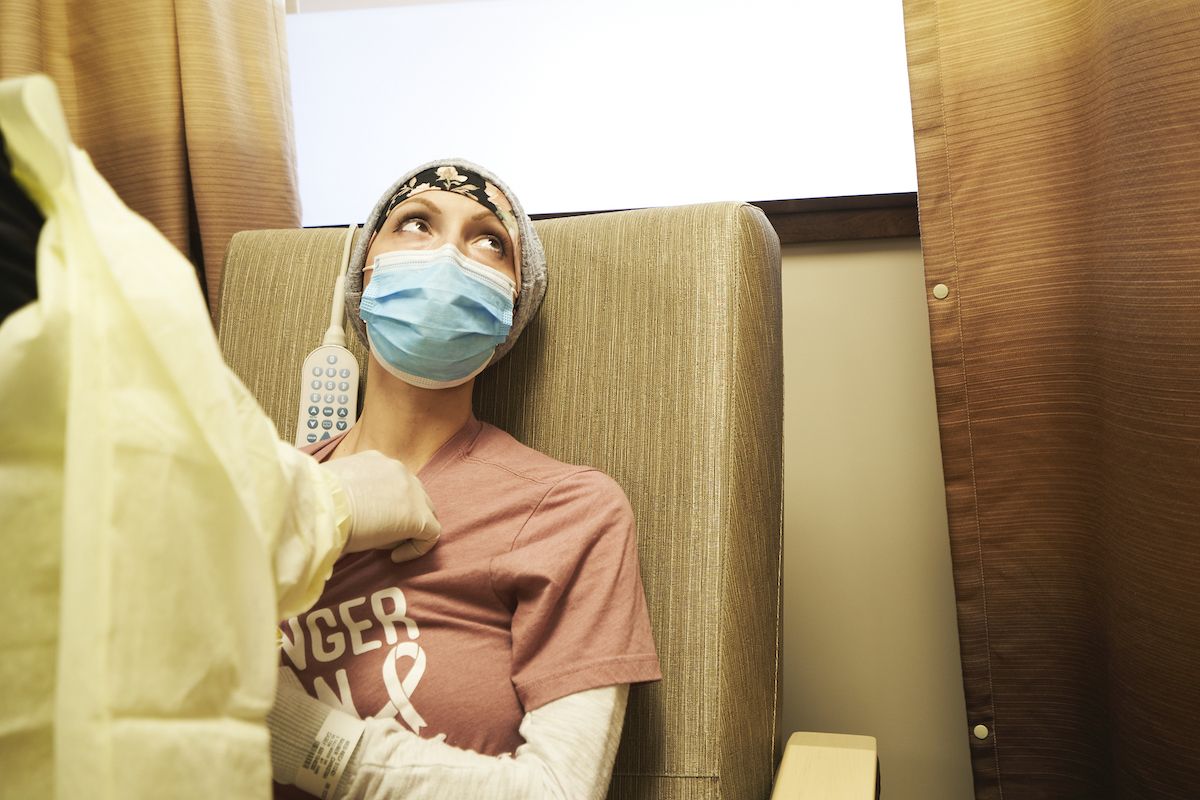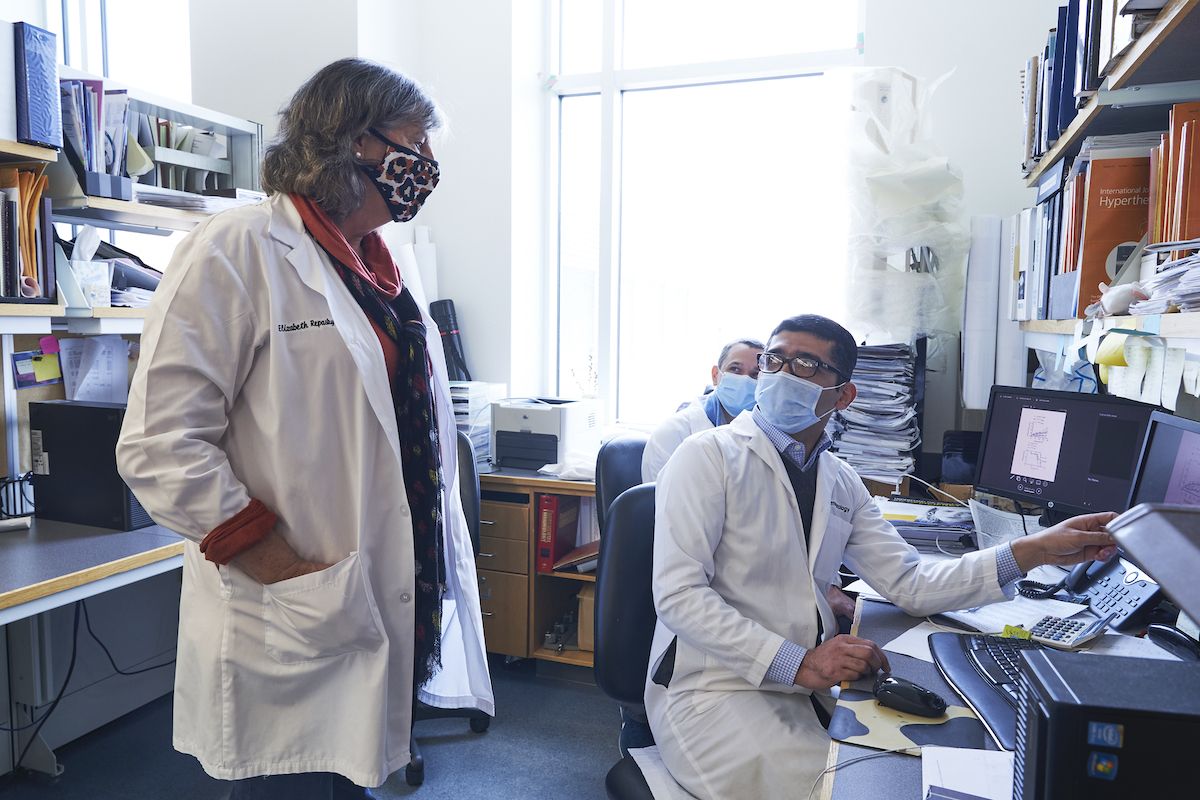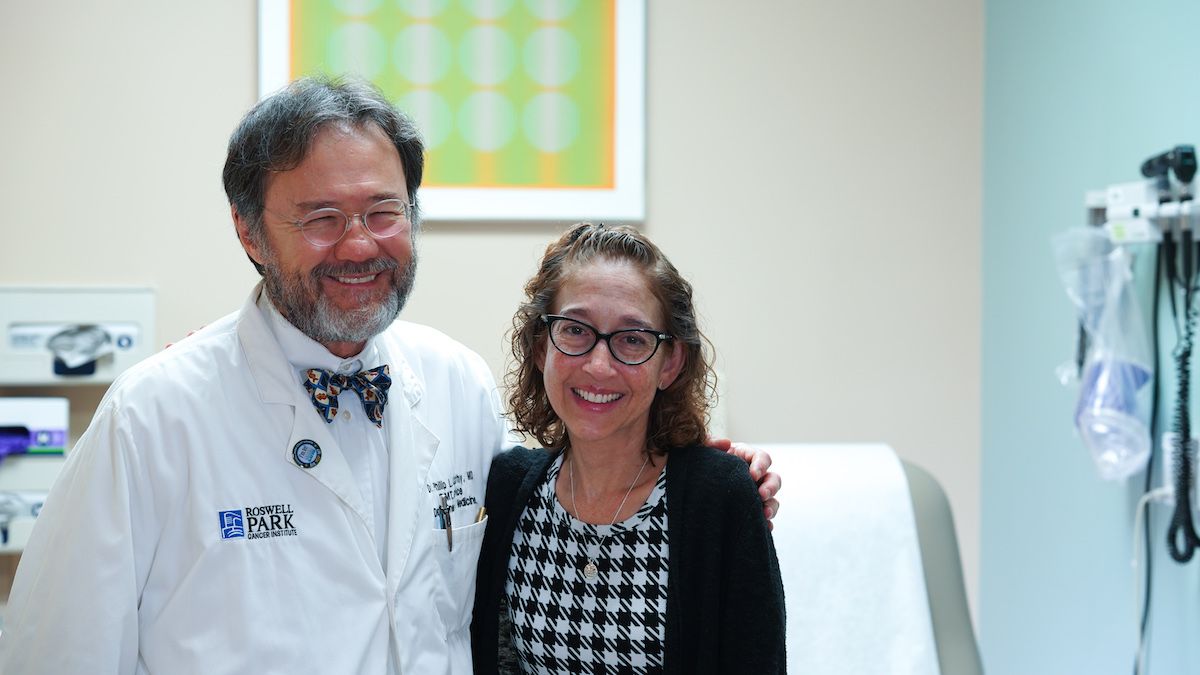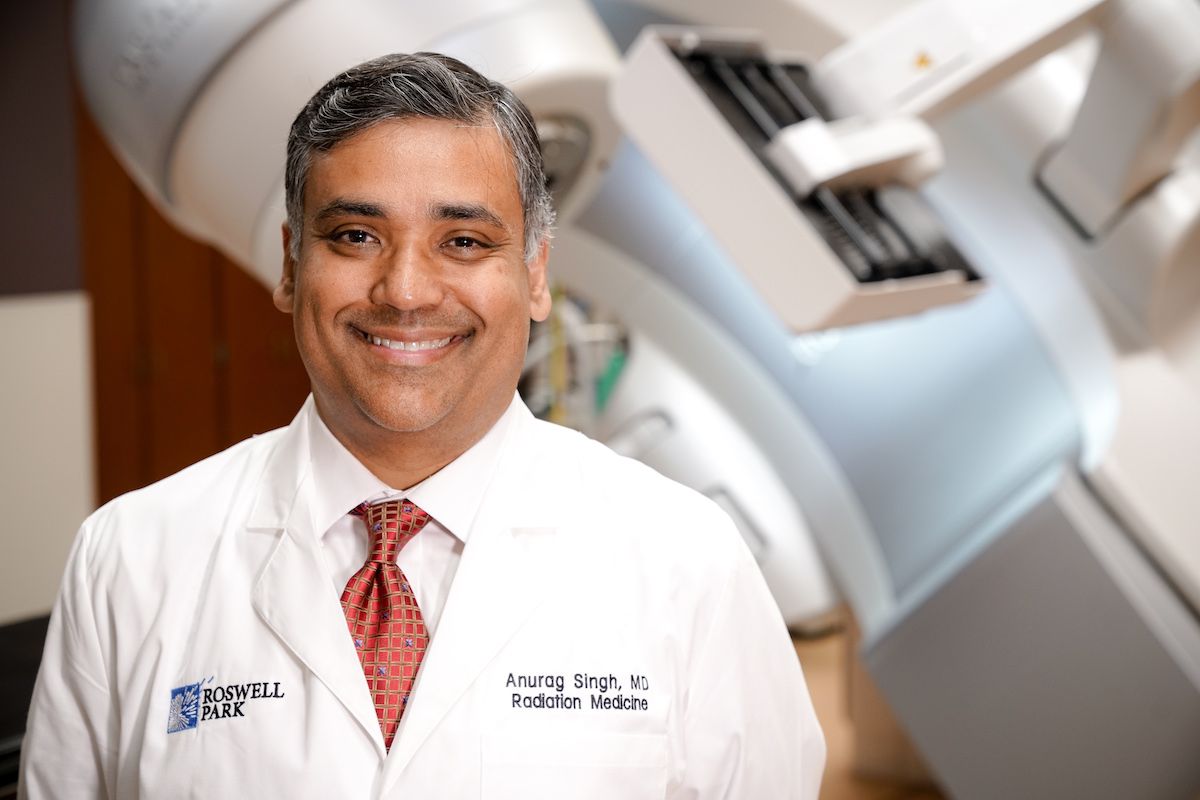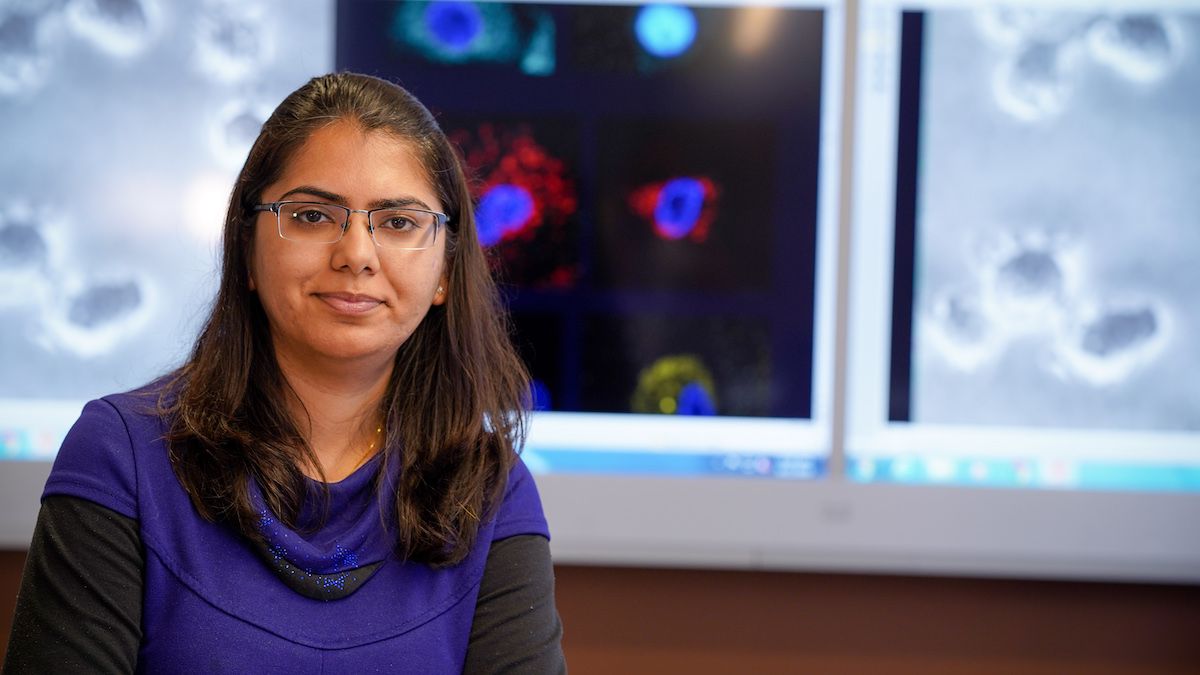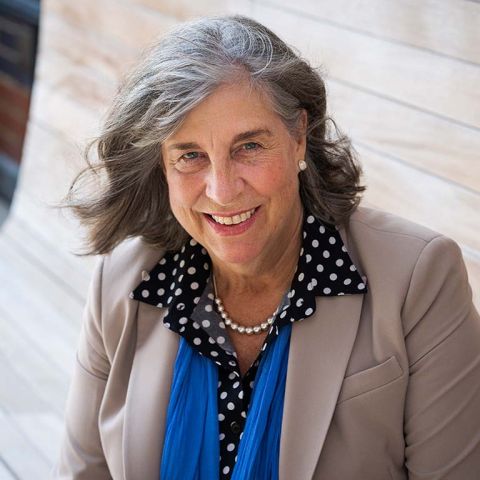Many cancer patients report that they frequently feel cold, even when everyone around them is comfortable. That intrigues Elizabeth Repasky, PhD, Interim Chair of Immunology at Roswell Park and a pioneering scientist in the fields of thermal medicine, cellular stress and immunology.
“For decades my work has been driven by curiosity about the processes that involve body temperature — and the way those processes affect tumor growth and anti-tumor immunity. This includes an interest in how tumors can disrupt mechanisms we need to stay warm,” she explains.
“Staying warm uses up a lot of energy. If a cancer patient is feeling chronically cold for no apparent reason, that can be stressful and might also mean that energy is being spent elsewhere, and we want to know what’s using up that energy. We’re pretty sure it’s the tumor, combined with an anti-tumor immune response.”
Effects of stress on the immune system
“Cold is just one source of stress that can weaken the immune system, and it’s a good model for us to study,” says Dr. Repasky. “We already know that if a person is very stressed — and unfortunately, stress such as anxiety increases if you get a cancer diagnosis — that may divert valuable energy that could be used for the anti-tumor immune response.”
With that hypothesis in mind, she has joined forces with her Roswell Park colleagues to find out whether reducing stress in patients can make cancer treatments more effective. Members of her lab are working with physicians and researchers in other departments, sharing knowledge gained in the lab so it can be applied in clinical trials to help patients.
That line of research got a boost in 2019 when the $500,000 Herd of Hope Team Science Award went to a team co-led by Christine Ambrosone, PhD, Senior Vice President of Population Sciences and Chair of Cancer Prevention & Control; Elizabeth Bouchard, PhD, Department of Cancer Prevention and Control; and Dr. Repasky. Donations to Herd of Hope provided funding for a series of projects in which the team is taking a closer look at the relationship between stress and cancer.
The projects focus on different ways of studying the impact of stress, with the goal of improving treatment effectiveness. With researchers in Roswell Park’s Population Sciences Program, members of Dr. Repasky’s lab team are extending their studies to examine the impact of stress in various patient populations.
Focusing on stress in breast cancer patients
In one part of the program, Dr. Repasky and Chi-Chen Hong, PhD, of the Department of Cancer Prevention & Control, have led research efforts to determine how breast cancer is affected by the stress that many patients experience. Armed with biological samples and information provided by Roswell Park patients who enrolled in the Women’s Health After Breast Cancer (ABC) study, the group is testing whether there is any correlation between “feeling cold” and other stresses after a breast cancer diagnosis, and overall treatment outcome and survival.
Another study focuses in part on the role that 27 different types of cytokines might play in causing some patients to feel cold. Cytokines are proteins that help regulate the immune system, and they include harmful inflammatory cytokines.
Allogeneic blood or marrow transplant: Can manipulating stress lower the risk of graft-versus-host disease?
While a weakened immune system can put you at greater risk of getting sick, it could also have a positive effect in patients who undergo a blood or marrow transplant involving a donor. Research on stress conducted by Dr. Repasky and postdoctoral researcher Hemn Mohammadpour, PhD, DVM, has shown that suppressing the immune response in those patients has the potential to decrease the risk of a life-threatening condition called graft-versus-host disease (GVHD), where the immune system goes into overdrive and causes harm to normal tissues. This approach does not erase the beneficial graft-versus-tumor effect (GVT), which occurs when the donor’s T cells attack any cancer cells that remain in the patient’s body after chemotherapy.
Dr. Mohammadpour and Philip McCarthy, MD, Director of Roswell Park’s Transplant & Cellular Therapy Center, hope to launch a clinical trial based on this information, suppressing the immune system in allogeneic transplant patients with FDA-approved drugs commonly used to treat people with asthma or high blood pressure, or in women at risk of premature labor.
Learn more about this line of research.
Can reducing stress expand the power of radiation therapy?
Although radiation therapy specifically targets a malignant tumor, it can also shrink tumors in other parts of the body even though they were not irradiated. This is called the abscopal effect. It’s believed that radiation delivered to the tumor triggers an immune response throughout the entire body.
In a study published in Nature Communications in April 2020, Dr. Repasky’s team, in collaboration with Anurag Singh, MD, Director of Radiation Research at Roswell Park, reported that reducing stress enhanced the abscopal effect after radiation treatment, causing irradiated tumors to disappear faster while tumors in other parts of the body that did not receive radiation also shrank or disappeared.
Their work shows that reducing adrenergic stress — which causes the same physical responses as adrenaline, including a racing heart — results in better control of the irradiated tumor as well as distant tumors that were not targeted by the radiation. This can be done by giving patients FDA-approved beta blockers such as propranolol, an FDA-approved drug commonly used to treat high blood pressure.
Minhui Chen, PhD, a senior postdoctoral student in Dr. Repasky’s lab and first author of the study, says the goal is to reduce chronic (long-term) stress in cancer patients, “because our work shows stress can inhibit the ongoing immune responses to cancer and an individual’s response to therapy.”
Dr. Singh, who will lead new clinical trials combining propranolol with radiation, adds that by blocking adrenergic stress, “in addition to making radiation and chemotherapy work better, by boosting the immune system you may even be able to reduce metastasis — or spread of the tumor — to a different part of the body.”
Metastatic melanoma: Can stress reduction boost the effectiveness of immunotherapy?
In addition to the projects funded by Herd of Hope, Roswell Park researchers are extending Dr. Repasky’s laboratory work to determine whether stress reduction can make immunotherapy more effective in patients with melanoma that has metastasized, or spread.
Roswell Park patients newly diagnosed with metastatic melanoma were treated with a stress-reducing drug to advance our understanding of the effects of stress on cancer treatment. In a phase 1 clinical trial led by Shipra Gandhi, MD, of the Department of Medicine, patients received the FDA-approved immunotherapy pembrolizumab (Keytruda), along with propranolol, an FDA-approved beta blocker drug commonly used to treat high blood pressure.
Results of the study, published in Clinical Cancer Research in October 2020, revealed that the treatment combination was safe, and preliminary evidence showed that it produced a stronger clinical anti-cancer effect (response rate) than standard therapy alone.
“We know that stress can have significant negative effects on health,” says Dr. Gandhi, “but the extent to which it may impact the outcome of cancer therapy is not well understood at all.” To further that understanding, Dr. Gandhi is leading a phase 2 clinical trial that will use the same treatment combination in patients who have stage 3c or 4 cutaneous melanoma. The trial is enrolling patients from Roswell Park, Penn State Milton S. Hershey Medical Center, Cleveland Clinic and Emory University.
Energized by their latest discoveries, Dr. Repasky says she and her colleagues “are making clinical inroads now, more than we ever have before. We’re doing the most exciting work, and I’m happy to say that I think the best is yet to come.”
